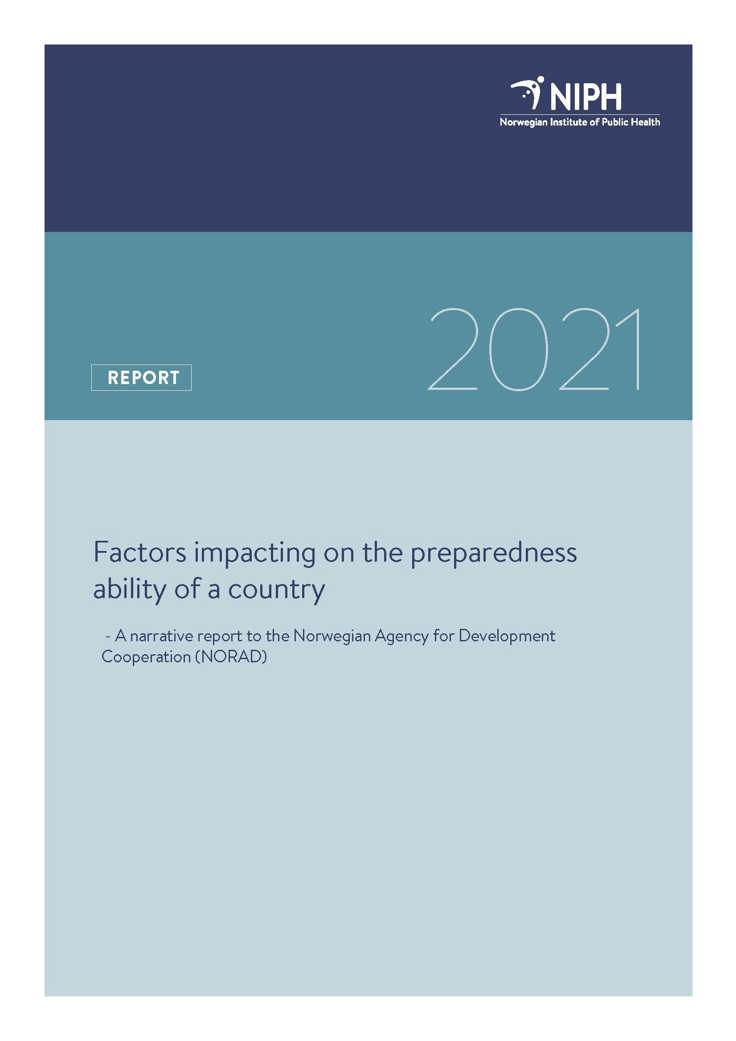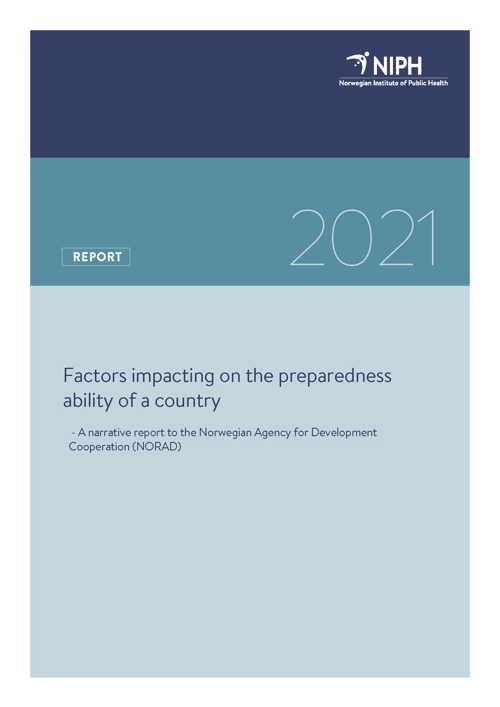Factors impacting on the preparedness ability of a country
Rapport
|Publisert
The Global Health Preparedness Programme (GHPP) is a programme at NIPH funded by the Norwegian Ministry of Foreign Affairs and NORAD 2015-2021 to strengthen global health preparedness through collaboration at the global level and in four partner countries.
Hovedbudskap
In this report, we aim at:
1. Describing some essential experiences from the current COVID-19 pandemic
2. Exploring various sets of factors impacting national epidemic preparedness and how to review them,
3. Discussing a more comprehensive model with key factors that need to be taken into account to build, assess and improve a robust and resilient national health security system.
To achieve the aims we used qualitative scientific methodology of reviewing literature, recommendations, and reports to address the following topics: International Health Regulations, epidemic preparedness, building capacities, resilience, and COVID-19. We explored documents from international organisations like the WHO, World Bank, International Monetary Fund, GPMB, IANPHI, and the United Nations, and from scientific institutes like University of Oxford, Johns Hopkins University, National Institute of Health and US CDC.
COVID-19 has caused an unprecedented global crisis in recent times, with millions of lives lost, exhausted health systems, economic volatility, and social disruption. It has also disproportionately affected the most vulnerable. As of June 2021, there are over 170 million confirmed cases and close to four million COVID-19 deaths globally. The International Health Regulations (2005) were adopted by the WHO to strengthen global health security in public health emergencies by strengthening national capacities of epidemic preparedness. Despite the significance of the IHR monitoring and evaluation tools to guide countries in developing their national plans for health security, these tools did not sufficiently cover countries’ abilities to handle the COVID-19 pandemic. The ongoing pandemic has exposed the vulnerability of the current global health system and has shown how the global community is ill prepared.

